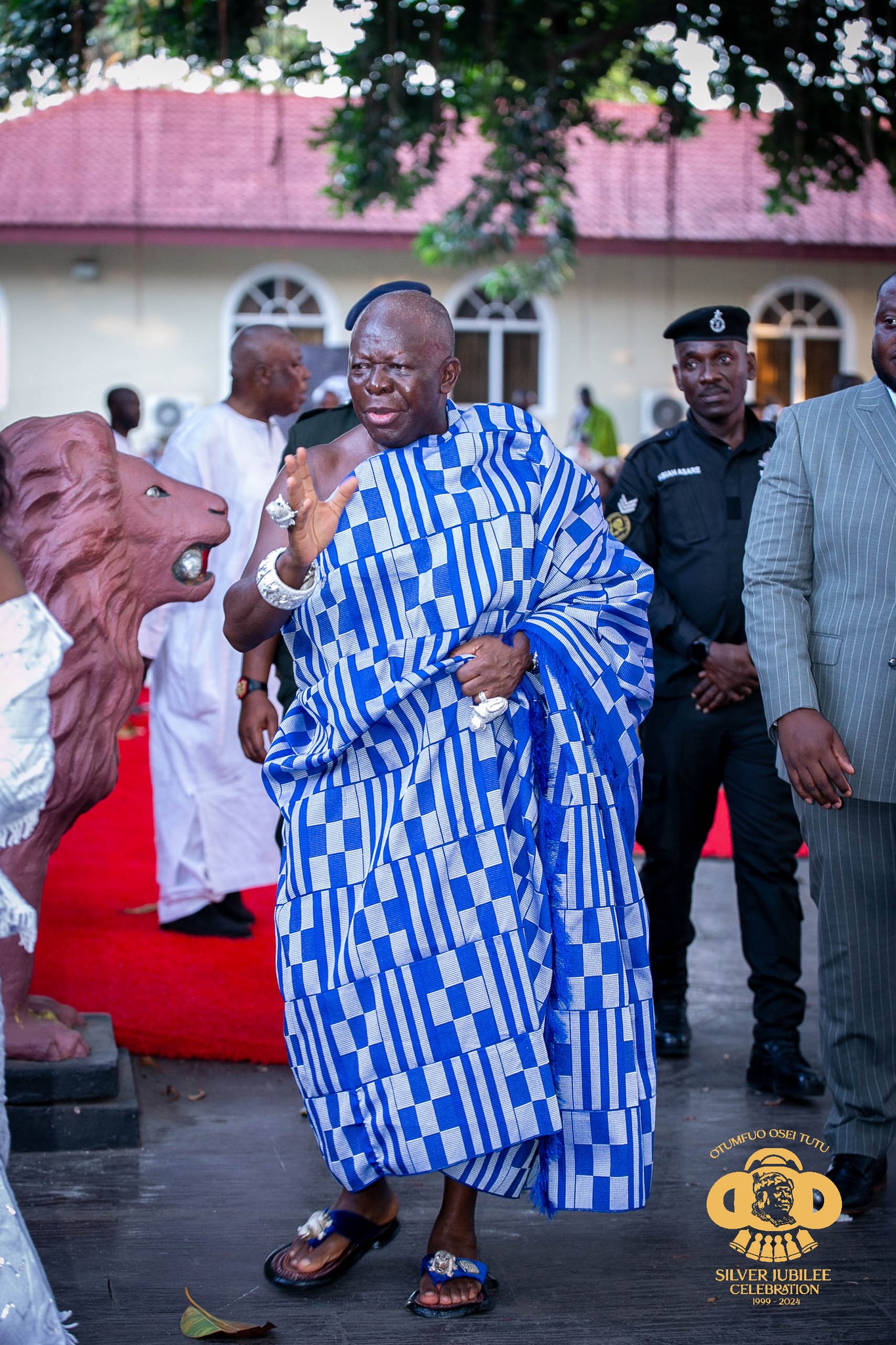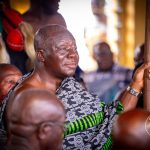Otumfuo at 26: More Than A King Beyond Colonial Terminology

For 26 years, Otumfuo Osei Tutu II has occupied the Golden Stool — not merely as a ceremonial leader, but as the sovereign King of Asanteman.
Yet, beyond the borders of Asanteman, there has often been confusion about his title.
Under Ghana’s Constitution, he is classified as a “chief.” But while legally accurate, this terminology does not capture the true weight, authority, and history of his position.
The term “chief” is a relic of colonial times — a tool used by imperial powers to strip African monarchs of their rightful recognition. In their own systems, Europeans had kings and emperors; yet in Africa, they chose the word “chief” to diminish the stature of traditional rulers and place them beneath European standards.
It was never a true reflection of the power, independence, and sovereignty of kingdoms like Asanteman.
For Asanteman, Otumfuo Osei Tutu II is not just a chief; he is a King — the Asantehene.
The Golden Stool he occupies is the very soul of the Asante nation, symbolizing authority that is political, spiritual, and cultural.
The Unique Authority of the Asantehene
Unlike many other traditional structures, the Asante chieftaincy system is distinct.
Paramount chiefs — themselves powerful rulers within their territories — swear allegiance to the Asantehene. They owe their enstoolment, and their removal, to him.
Otumfuo does not pledge loyalty to any other earthly authority within the Kingdom.
He reigns supreme over states — a clear marker that his position is not simply one of ceremonial leadership, but of sovereign kingship.
Thus, within Asanteman and by the long traditions that have shaped it for centuries, Otumfuo Osei Tutu II is King — not in name alone, but in the full exercise of supreme authority.
A Reign Beyond Terminology
Over the past 26 years, Otumfuo Osei Tutu II has not needed titles to prove his influence. His reign has been characterized by peace-building, educational advancement, cultural preservation, and global diplomacy.
World leaders, international institutions, and respected universities have all recognized him as a monarch — not out of courtesy, but because of the real influence and heritage he represents.
At Manhyia and across Asanteman, he is not addressed as “chief.”
He is hailed as Otumfuo — the mighty King whose leadership commands loyalty, respect, and reverence.
While the Constitution uses the word “chief” for legal purposes, Asanteman knows the truth that history and tradition have long preserved: Otumfuo Osei Tutu II is not simply a chief — he is King.
A sovereign leader forged from the spirit of a proud and unconquered people.
On the 26th anniversary of his enstoolment, we celebrate not just his reign, but the enduring power of Asanteman’s identity.
Story by Adwoa S. Danso



